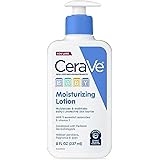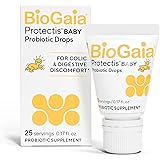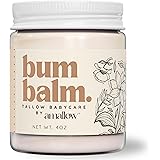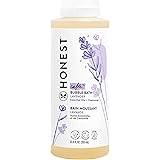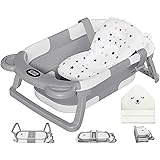The journey of parenthood is filled with countless moments of joy, wonder, and, naturally, a deep concern for the well-being of our little ones. As highlighted in the video above, one area that demands particular attention is baby health and hygiene, especially when it comes to the products we choose. Every parent wants to ensure their baby is safe, clean, and protected from germs without exposing their delicate skin to harsh chemicals. This often leads to a search for products featuring natural ingredients, striking a crucial balance between effective germ protection and gentle care.
Imagine, for a moment, the incredibly sensitive nature of a baby’s skin. It is thinner, more permeable, and still developing its natural protective barrier. This makes infants particularly vulnerable to irritants and allergens found in many conventional products. Therefore, selecting skincare and cleaning items with thoughtful formulations isn’t just a preference; it’s a fundamental aspect of nurturing their health from day one.
The Undeniable Advantage of Natural Ingredients for Infant Care
When you consider a baby’s developing body, the choice of natural ingredients becomes incredibly compelling. Many synthetic chemicals, commonly found in adult products, can strip away natural oils, leading to dryness, rashes, and discomfort for infants. However, nature offers a wealth of compounds that are inherently soothing, moisturizing, and even possess mild antimicrobial properties.
A product formulated with natural ingredients often avoids harsh detergents, artificial fragrances, and synthetic dyes. These are common culprits behind skin sensitivities and allergic reactions in babies. Instead, they rely on botanicals and plant extracts that work in harmony with a baby’s delicate system. This approach supports the skin’s natural functions, helping it to build resilience rather than breaking it down.
Understanding ‘Tough on Germs, Gentle on Babies’
The phrase “tough on germs, gentle on babies” perfectly encapsulates the ideal for infant hygiene products. How do natural ingredients achieve this balance? Many plant-derived components offer inherent antimicrobial benefits without the aggressive chemical action of some synthetic alternatives. For instance, specific botanical extracts can disrupt bacterial growth on the skin’s surface without causing irritation or compromising the skin’s protective lipid layer.
Consider tea tree oil, known for its antiseptic properties, or chamomile, which soothes while gently cleansing. When used in appropriate, diluted concentrations, these natural elements can effectively reduce the presence of harmful microbes. However, they do so without the harshness that could lead to dryness or allergic reactions. This careful formulation ensures essential germ protection is maintained, while the baby’s skin remains soft, hydrated, and healthy. It’s about smart, targeted hygiene, not aggressive chemical bombardment.
Key Natural Ingredients to Seek Out (and What to Avoid)
Navigating the baby product aisle can feel overwhelming. Knowing what to look for, and what to steer clear of, makes the process much simpler. Always prioritize ingredient lists that are short, understandable, and free from common irritants.
Beneficial Natural Ingredients
-
Aloe Vera: A remarkable plant known for its soothing and moisturizing properties. It calms irritated skin and helps with hydration.
-
Calendula: Derived from the marigold flower, calendula is celebrated for its anti-inflammatory and healing capabilities, excellent for sensitive skin.
-
Chamomile: Often used for its calming scent, chamomile also offers anti-inflammatory and antiseptic benefits, perfect for delicate skin.
-
Oatmeal: Colloidal oatmeal is a long-standing remedy for dry, itchy, or eczema-prone skin due to its protective and soothing qualities.
-
Coconut Oil & Shea Butter: Excellent natural emollients that provide deep moisturization and help reinforce the skin’s barrier.
-
Plant-based Cleansers: Look for mild surfactants derived from coconuts or other plants, which create a gentle lather without stripping natural oils.
Ingredients to Avoid
On the other hand, certain ingredients are best avoided in baby care products due to their potential to irritate or cause harm:
-
Parabens: Preservatives that can disrupt hormone function.
-
Phthalates: Often found in fragrances, linked to developmental and reproductive issues.
-
Sulfates (SLS/SLES): Harsh detergents that can strip skin of its natural oils, leading to dryness and irritation.
-
Artificial Fragrances: A common cause of allergic reactions and skin sensitivities.
-
Dyes: Offer no benefit to the product and can be potent skin irritants.
-
Formaldehyde-releasing Preservatives: Known carcinogens and skin irritants.
Imagine if every product you picked up had a clear, easy-to-understand label highlighting these safe choices. Your peace of mind would significantly increase.
Beyond Products: Holistic Baby Hygiene Practices
While choosing the right products is vital, remember that baby health and hygiene extends to daily routines and environmental factors. A holistic approach ensures your little one remains truly protected.
-
Bathing Routines: Babies don’t need daily baths. Two to three times a week is often sufficient, using lukewarm water and a mild, natural cleanser. Focus on gentle patting dry, especially in skin folds.
-
Diaper Changes: Frequent changes are crucial to prevent diaper rash. Clean the area thoroughly with gentle wipes or water, and apply a barrier cream if needed, opting for those with zinc oxide or petroleum jelly as key ingredients.
-
Hand Hygiene for Caregivers: Always wash your hands thoroughly before handling your baby, feeding them, or changing their diaper. This simple act drastically reduces the spread of germs.
-
Cleaning Toys and Surfaces: Regularly clean and sanitize toys, especially those that go into your baby’s mouth. Use natural, non-toxic cleaners for surfaces your baby frequently touches.
-
Laundry Care: Wash baby clothes, bedding, and blankets separately using a mild, fragrance-free detergent designed for sensitive skin. This helps prevent contact dermatitis.
Implementing these practices alongside thoughtfully chosen natural products creates a comprehensive shield for your baby. It fosters a clean, safe environment where they can thrive and explore without unnecessary risks.
Making Informed Choices for Your Little Angel
The market for baby care products is vast, making informed choices essential. Always take the time to read ingredient labels thoroughly. Don’t be swayed by marketing buzzwords; instead, look for certifications from trusted organizations that verify a product’s safety and natural claims. Consider patch-testing new products on a small area of your baby’s skin before widespread use, especially if they have known sensitivities.
Ultimately, trusting your instincts as a parent plays a significant role. If a product doesn’t feel right, or if your baby shows any adverse reaction, discontinue use immediately. Prioritizing baby health and hygiene means choosing products with natural ingredients that support, rather than challenge, your child’s delicate system. It’s an investment in their comfort, health, and happy development.
Little Angels, Natural Care: Your Q&A
Why is it important to choose gentle products for a baby’s skin?
A baby’s skin is very sensitive because it’s thinner and still developing its natural protective barrier. This makes infants vulnerable to irritants and allergens often found in conventional products.
What is the main benefit of using natural ingredients in baby products?
Natural ingredients are inherently soothing, moisturizing, and less likely to cause dryness, rashes, or allergic reactions in infants. They work in harmony with a baby’s delicate system to build skin resilience.
What does “tough on germs, gentle on babies” mean for baby products?
This phrase means that products can effectively reduce harmful microbes using natural components without the aggressive chemical action that could irritate a baby’s delicate skin. It ensures essential germ protection while keeping skin soft and healthy.
Can you name a few good natural ingredients to look for in baby products?
Some beneficial natural ingredients include Aloe Vera for soothing, Calendula for healing, Chamomile for calming, and Oatmeal for soothing dry or itchy skin. Coconut Oil and Shea Butter are also great for moisturizing.
Are there any ingredients I should avoid in baby care products?
Yes, you should avoid parabens, phthalates, sulfates (SLS/SLES), artificial fragrances, and dyes. These can be harsh on a baby’s skin and may cause irritation or allergic reactions.



